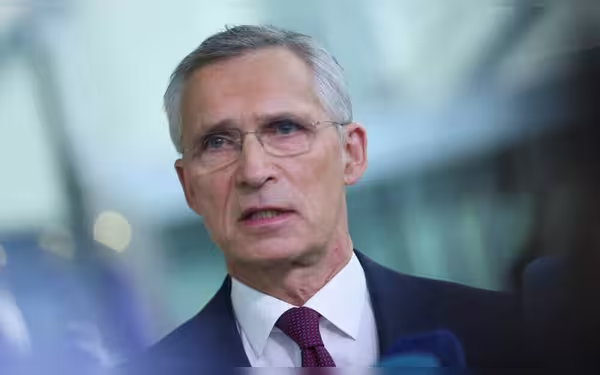Saturday, November 16, 2024 11:54 PM
NATO's Stoltenberg Admits More Could Have Been Done to Prevent Ukraine War
- Stoltenberg acknowledges NATO's hesitance in arming Ukraine.
- Dialogue with Russia is essential for ending the conflict.
- Mark Rutte to succeed Stoltenberg as NATO leader.
 Image Credits: brecorder
Image Credits: brecorderNATO's Stoltenberg reflects on the alliance's actions before the Ukraine war, emphasizing the need for dialogue and military support.
In a recent interview, NATO Secretary General Jens Stoltenberg expressed a critical reflection on the alliance's actions leading up to the war in Ukraine. He stated that NATO could have done more to arm Ukraine in an effort to prevent Russia's invasion in 2022. This admission highlights the complex dynamics of international relations and military preparedness in the face of aggression.
Stoltenberg, who has been at the helm of NATO since 2014, pointed out that prior to the full-scale invasion, NATO was hesitant to provide the weapons that Ukraine had requested. The alliance feared that supplying arms could escalate tensions with Russia, a concern that ultimately proved to be a miscalculation. As the conflict unfolded, Ukraine, despite not being a NATO member, received a steady stream of military support from its allies, albeit after initial delays.
As Stoltenberg prepares to step down from his position in October, he emphasized the importance of dialogue in resolving the ongoing conflict. He stated, "To end this war there will have to be again dialogue with Russia at a certain stage. But it has to be based on Ukrainian strength." This statement underscores the necessity of a balanced approach in negotiations, where Ukraine's sovereignty and strength are prioritized.
Looking ahead, the future of NATO and its role in global security remains a topic of significant interest. With Stoltenberg's departure, the organization will welcome Dutch former Prime Minister Mark Rutte as its new leader. The transition comes at a critical time, as NATO continues to navigate the challenges posed by Russia's actions and the broader implications for European security.
Stoltenberg's reflections serve as a reminder of the complexities involved in international military alliances and the importance of timely action in the face of threats. As the world watches the developments in Ukraine, it is clear that the lessons learned from this conflict will shape the future strategies of NATO and its member states. The path to peace may be fraught with challenges, but it is essential that all parties remain committed to dialogue and cooperation.













